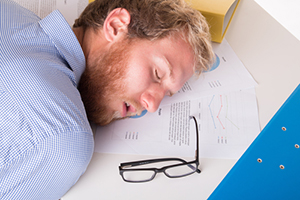 You may think you’re just enjoying this practice. After all, hasn’t it been proven to improve almost all markers of health?
You may think you’re just enjoying this practice. After all, hasn’t it been proven to improve almost all markers of health?
No, No, No, says a new study!
In fact, this favorite habit of many people with type 2 diabetes is drastically contributing to the disease.
And no, it has nothing to do with food or eating.
In 2015, a Japanese research team led by Dr. Tomohide Yamada presented some fascinating research at the annual meeting of the European Association for the Study of Diabetes. It will soon be published in the journal Diabetologia.
The team conducted a scientific literature review on the link between daytime sleepiness, the tendency to take long daytime naps, and diabetes. These were their findings:
1. Excessive daytime sleepiness increases the risk that you have diabetes by 56 percent.
2. Daytime naps of 60 minutes and longer increase the risk that you have diabetes by 46 percent.
3. Naps shorter than 40 minutes decrease the chance that you have type 2 diabetes. So don’t skip your afternoon powernap; just keep it short.
Since the research isn’t yet published, it is difficult to ascertain the exact nature of the link, but one would assume they believe that daytime sleepiness and long daytime naps serve as a signal that you might have diabetes rather than being a cause of it.
Most of the explanations for this run via sleep apnea, a common sleep disorder that involves the temporary but frequent cessation of breathing during sleep. People who suffer from this sleep disorder usually sleep badly at night, which is why they are sleepy during the day.
In a study on 2,149 people referred to a sleep clinic for sleep diagnostic testing, published in a 2009 edition of the journal Thorax, Canadian researchers found that those with the most severe sleep apnea who also complained the most about daytime sleepiness were also the most likely to have diabetes. Diabetics may, thus, be tired during the day because they don’t sleep properly at night because of sleep apnea.
So what does this have to do with type 2 diabetes?
In a scientific literature review published in a 2007 issue of The Diabetes Educator, the authors concluded that sleep apnea and type 2 diabetes exacerbate each other.
Sleep apnea interferes with glucose metabolism. It starves tissue of oxygen and rest, which makes healthy metabolism impossible. A lack of proper sleep also alters leptin levels, which then cause weight gain. In that sense, sleep apnea contributes to diabetes.
Diabetes can also exacerbate sleep apnea by increasing neck circumference, waist circumference, and body mass index, three major risk factors in this sleep disorder. In that way, diabetes contributes to sleep apnea.
With the two feeding each other, it is unsurprising that many people with sleep apnea have type 2 diabetes and are drowsy during the day.
However, you don’t have to have sleep apnea in order to be sleepy during the day. People who snore excessively during the night also sleep poorly and, as a result, they also want to sleep a lot during the day.
Unsurprisingly, diabetes contributes to snoring as well. A paper published in a 2008 issue of Diabetes Research and Clinical Practice concluded that people with diabetes were more likely to have a large neck circumference and a high body mass index, and, you guessed it, more likely to be heavy snorers.
The last reason why diabetics are sleepy during the day goes via depression. Depression is one of the strongest causes of daytime sleepiness, and academics also discovered that depressed people have poorer glycemic control, possibly because many of them over-eat and under-exercise. Diabetics may, thus, sleep during the day, not so much because they are diabetic, but because many of them happen to be depressed.

 Overcoming IBD
Overcoming IBD Multiple Sclerosis
Multiple Sclerosis Banishing Bronchitis
Banishing Bronchitis Gum Disease Gone
Gum Disease Gone Overcoming Onychomycosis
Overcoming Onychomycosis Neuropathy No More
Neuropathy No More The Prostate Protocol
The Prostate Protocol Brain Booster
Brain Booster
 Ironbound
Ironbound
 Solution for Shingles
Solution for Shingles
 The Bone Density Solution
The Bone Density Solution
 The Ultimate Healing Protocol
The Ultimate Healing Protocol
 The Parkinson's Protocol
The Parkinson's Protocol
 The Chronic Kidney Disease Solution
The Chronic Kidney Disease Solution
 Overthrowing Anxiety
Overthrowing Anxiety The Fatty Liver Solution
The Fatty Liver Solution The Hypothyroidism Solution
The Hypothyroidism Solution
 The End of Gout
The End of Gout The Blood Pressure Program
The Blood Pressure Program
 The Oxigized Cholesterol Strategy
The Oxigized Cholesterol Strategy
 Stop Snoring And Sleep Apnea Program
Stop Snoring And Sleep Apnea Program
 The Arthritis Strategy
The Arthritis Strategy The Vertigo & Dizziness Program
The Vertigo & Dizziness Program The 3-Step Diabetes Strategy
The 3-Step Diabetes Strategy Hemorrhoids Healing Protocol
Hemorrhoids Healing Protocol The Erectile Dysfunction Master
The Erectile Dysfunction Master Weight Loss Breeze
Weight Loss Breeze The IBS Program
The IBS Program The Insomnia Program
The Insomnia Program The Migraine and Headache Program
The Migraine and Headache Program The Neck Pain Solution
The Neck Pain Solution The Menopause Solution
The Menopause Solution The Ejaculation Master
The Ejaculation Master The TMJ Solution
The TMJ Solution The Acid Reflux Solution
The Acid Reflux Solution The Fibromyalgia Solution
The Fibromyalgia Solution The Psoriasis Strategy
The Psoriasis Strategy
a notification for a type 2 diabetic patient…
great info
Good info